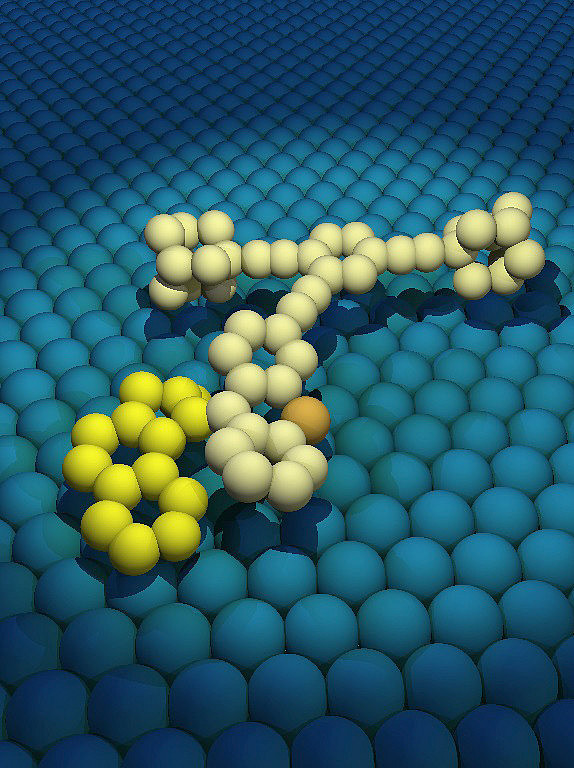The aim of the AMOS research project (short for Adsorbate Motors: Tricking Microscopic Reversibility on Surfaces) is to make nano-machines fit for practice. The big challenge here is to trick nature to steer molecules in a desired direction. "All chemical processes - such as the movement of atoms - always run both forwards and backwards in equilibrium. Redirecting this backward movement is fundamentally important in order to be able to control molecular motors in a targeted manner," explains project leader Leonhard Grill, a physicist at the University of Graz. For his project, he has now been awarded an ERC Advanced Grant, one of the highest endowed grants awarded by the EU. He will receive 2.5 million euros for the next five years.
"Our goal is to control molecular motors that can also transport cargo at the atomic level," the researcher describes. Light is used as the "drive" so that many of these mini-machines can be set in motion from a distance. The big challenge for Grill is to find the right combination of motor and surface so that the molecules can be moved efficiently and precisely.
AMOS is concerned with both basic research and potential technological applications. "The project will give us a better understanding of nano-machines. In addition, we want to develop model systems and investigate how the motor activity can be enhanced, for example by arranging many motors that function cooperatively next to each other," explains the physicist. This opens up revolutionary possibilities in a wide range of areas, for example materials whose properties are manipulated by light, or the control of flows through microscopic channels and membranes.
About the researcher
Leonhard Grill has been Professor of Physical Chemistry at the University of Graz since 2013. In 2017, he won the first international nano-car race. Furthermore, he and his team have already succeeded in sending and receiving individual molecules, controlling their state with light, linking them together to form molecular wires or networks, or rotating them in a desired direction.
About the ERC Advanced Grant
The European Research Council (ERC) selected 218 applications for funding out of 1647 submitted, four of them from Austria. "This high distinction shows that scientists at the University of Graz are also among the European excellence or world leaders," emphasises Joachim Reidl, Vice Rector for Research.
